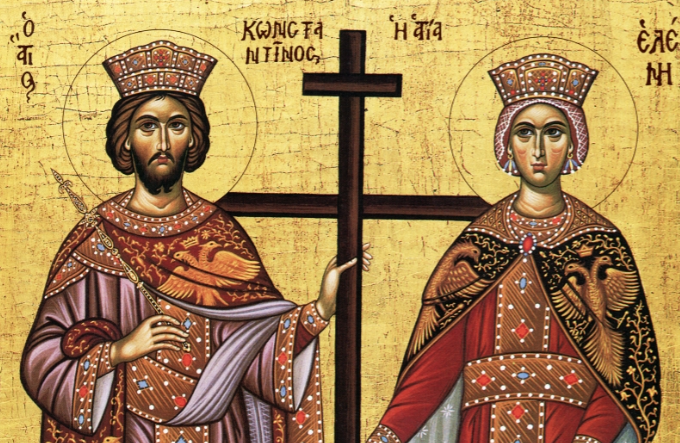He convened several other councils to address various theological disputes and issues within the Church. He also worked to restore and rebuild churches that had been destroyed during the persecutions, and he provided financial support to the clergy and the Church.
Despite his efforts to promote unity within the Church, Saint Constantine’s later years were marked by personal and political turmoil. He became increasingly autocratic and suspicious, leading to the execution of his own son and other family members. He also moved away from his early support of Christianity, favoring instead a form of religious syncretism that combined elements of Christianity with pagan beliefs.
Saint Constantine died in 337, and his legacy remains a complex and debated topic among historians and theologians. While he is remembered for his role in promoting religious tolerance and convening the Council of Nicea, his later actions and policies have raised questions about his true motives and commitment to the Christian faith.
Overall, Saint Constantine’s reign was a pivotal period in the history of Christianity, shaping the development of the Church and its relationship with the Roman Empire for centuries to come. His legacy, like that of many historical figures, is a complex and multifaceted one that continues to be studied and debated by scholars and believers alike. Saint Constantine was a great ruler who played a significant role in the spread of Christianity and the triumph of the Faith over idolatry. His acceptance of holy Baptism on his deathbed was a testament to his lifelong dedication to the Christian faith. His mother, Saint Helena, also contributed to the glory of Christ by discovering the Holy Cross and building churches in Jerusalem and other holy sites.
Constantine’s victories in battle, his vision of the Cross, and his conversion to Christianity are all important aspects of his life that demonstrate his devotion to God. His actions, including convening the First Ecumenical Council in Nicaea, helped to solidify the Orthodox Christian faith and protect it from heresies.
Both Constantine and Helena are remembered as saints for their piety, dedication to the Christian faith, and contributions to the spread of Christianity. Their legacy continues to inspire Christians around the world to this day. His body was laid to rest in the Church of the Twelve Apostles in Constantinople.
Source link

